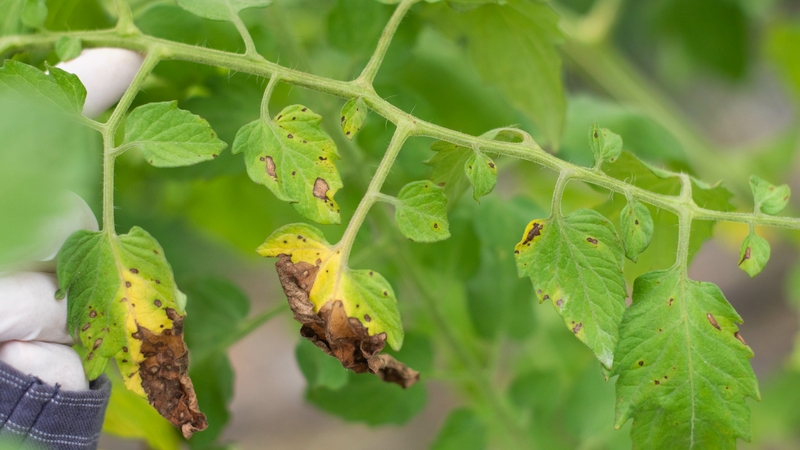5 Trends in Agritech That Have the Produce Industry Growing
Agricultural technology is a rapidly developing industry, which is promising for the Ag tech innovation space. To help keep you up to date, we’re taking a look at the top 5 trends in Agritech today.
These technologies are designed to help farmers and advisors enhance crop yield and field and soil health to ensure a successful farming year.
Collaboration and Integrations in Agriculture
The No. 1 trend deals with making farm data and soil microbe data more accessible to farmers. This ultimately helps farmers establish a deeper understanding of the fundamental biological makeup of the soil on their farm’s operations.
Examples of technologies that help in this area include:
- Syngenta’s R&D-led LIVINGRO program. The program will utilize BeCrop to make science-based decisions that support the production of safe, healthy food while preserving and improving biodiversity and soil quality in agricultural ecosystems.
- DISAGRO. Through its innovative advisory service, AgritecGEO, offers the most advanced digital agriculture technology developed for the region. AgritecGEO is a service model supported by digital agriculture diagnostic tools that collect, analyze, and communicate information quickly and share it with its users via the App. And now, AgritecGEO will incorporate BeCrop technology into its services portfolio.
- Bayer and Ginkgo Bioworks close deal creating a partnership to develop biological products for agriculture. These corporates have joined together, driving innovation toward systems for crop protection, sequestering carbon, and also in the area of nitrogen breakdown to extract beneficial compounds such as nitrites or ammonia.
- Microsoft opens sources in its “Farm of the Future” toolkit. This new platform allows farmers to monitor multiple aspects of their far all year round, with a specific focus on temperature variations, soil moisture, soil nutrient levels, and plant health. Having access to data such as this will allow farmers to gain a much more holistic understanding of their farming climate.
Crop Protection and Biofertilizers
There are several new and emerging biological fertilizer solutions for farmers on the market today. Some of the top fertilizer and crop protection industry trends include:
- Using microbes to enhance the performance of fertilizer products for crop protection applications.
- Massive economic growth within the crop-nutrient and fertilizer industries as a result of increased demand for food, pushing the need to increase crop yield.
- The digitalization of agricultural procurement to meet the ever-increasing demand from farmers for agricultural input products. For example, Seedz offers a loyalty program where farmers can earn points with their online purchases toward other products they may need.
- New innovations allow for the introduction of soil and crop biologicals into farming practices. Bio-Capsule and Microbilize are two technological inventions from Meristem which allow biological’s increased performance across broad areas.
Supply Chain Transparency
Suppliers can track performance across the supply chain to pinpoint improvement opportunities. Having these technologies in place allows farmers to predict when crucial farming operations can happen, measure their sustainability, and when their own deliverables can be met. Tech trend examples include:
- BeCrop Rate. This product uses the power of soil biology and artificial intelligence (AI) to provide a metric system that enables its users to demonstrate and verify sustainability.
- Soiltech Wireless. This company is looking into innovative ways that incentivize and reward farmers for implementing sustainable farming practices. Their main focus is on the farms’ supply chains, allowing a transparent view of inputs and outputs from soil to storage.
IoT Technologies
IoT (Internet of Things) technologies are revolutionizing the way growers, advisors, retailers, and ag input manufacturers interact with the farm. Companies such as Acres are developing technology that can oversee farmland and provide data on the value and productivity of vast areas. Microsoft’s “Farm of the Future” toolkit is another example of technology utilizing and excelling within the IoT space.
AI/ML and Data Science in Agricultural Technology
The utilization of AI and machine learning (ML) mechanisms within Agritech are some of the most advanced innovations around today.
- INTENT is a company working on AI technology that focuses on increasing productivity, enhancing efficiency, and improving sustainability. Their infrastructures and practices aim to accelerate AI’s market availability to help farmers decrease production costs and increase yields to meet demand.
- BeCrop technology is the first Intelligence Computing System (ICS) based on AI, with a proprietary database of more than 170 crops analyzed from 40+ countries worldwide, consisting of ag-soil microbial profiles. BeCrop has the largest global database, containing over 14 million taxonomic references using DNA Next Generation Sequencing (NGS) techniques.
With the increasing demand for food on a global scale, these innovations are here to help farmers gain access to a better understanding of their land’s capabilities while saving them time and money. Without new trends in Agritech, meeting the latest production requirements can prove challenging, especially for larger commercial farms. By adopting new technological aspects into general farming practices, farmers will be able to accelerate their outputs and ensure sustainability in doing so.










